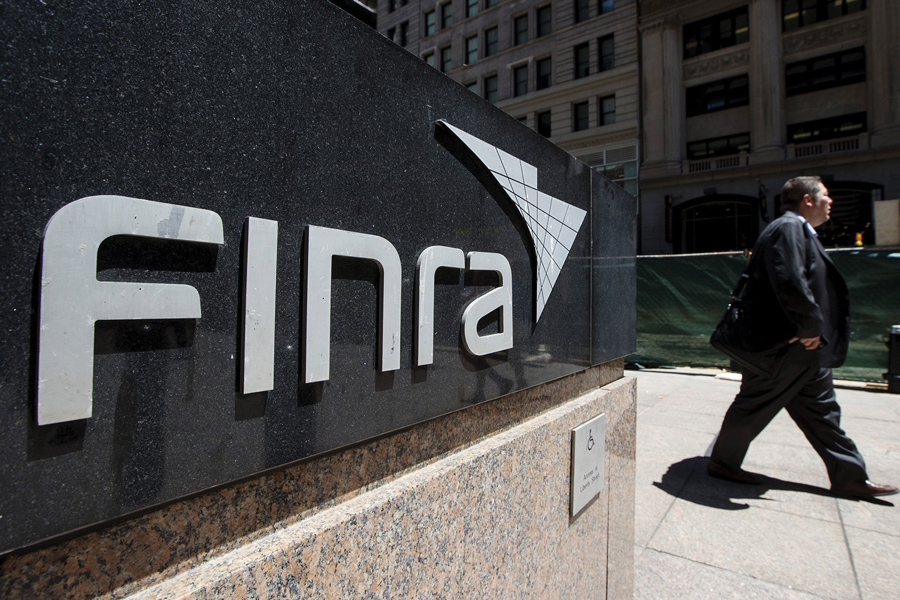

The Financial Industry Regulatory Authority Inc. said Thursday that Long Island, New York-based broker-dealer Joseph Stone Capital and eight of the firm's brokers had been ordered to pay $1.04 million in restitution to customers whose brokers had traded excessively in their accounts, a practice known as churning in the securities industry.
The churning at the Mineola firm, which opened in 2013, occurred from January 2015 to June 2020, according to a statement by Finra. Damian Maggio, CEO and owner of Joseph Stone Capital, did not return a call Thursday morning to comment.
As part of the settlement, the firm, supervisors and brokers agreed to Finra's findings while neither admitting nor denying the charges.
According to Finra, the firm was ordered to pay restitution of $825,000, while the eight brokers were ordered to pay $211,000 to clients. Finra suspended the eight brokers for three to eight months, and some of those brokers are no longer registered with Joseph Stone Capital.
The brokers who remain at the firm will work under a heightened supervision program for two years, according to Finra.
The regulator also suspended three supervisors for failing to reasonably identify or respond to red flags pointing to the churning and barred two reps for refusing to respond to Finra's requests for information in connection with the investigation.
Joseph Stone Capital failed to identify or address brokers' excessive and unsuitable trading in 25 client accounts, causing the customers to incur approximately $1 million in commissions and other trading costs, according to Finra.
The excessive trading in the accounts was evident in exception reports made available to Joseph Stone Capital by its clearing firm, according to Finra. That included an "active account report" that flagged accounts with high-commission-to-equity ratios. However, the designated principal responsible for reviewing actively traded accounts often did not review this report, according to Finra.
The trading in the accounts generated cost-to-equity ratios, meaning the amount the accounts would have to increase in value just to cover commissions and other trading expenses, ranging from 21% to 96%, according to Finra.
"Firms must ensure that they establish systems and procedures to supervise recommendations to retail customers; supervisors must use available tools to identify and address red flags of excessive trading; and representatives must ensure that the costs and commissions they charge are reasonable and not excessive," Jessica Hopper, executive vice president and head of Finra's enforcement department, said in the statement.

Research reveals a 4% year-on-year increase in expenses that one in five Americans, including one-quarter of Gen Xers, say they have not planned for.

Raymond James also lured another ex-Edward Jones advisor in South Carolina, while LPL welcomed a mother-and-son team from Edward Jones and Thrivent.

MyVest and Vestmark have also unveiled strategic partnerships aimed at helping advisors and RIAs bring personalization to more clients.

Wealth management unit sees inflows of $23 billion.

Deal will give US investment bank a foothold in lucrative European market.
Orion's Tom Wilson on delivering coordinated, high-touch service in a world where returns alone no longer set you apart.
Barely a decade old, registered index-linked annuities have quickly surged in popularity, thanks to their unique blend of protection and growth potential—an appealing option for investors looking to chart a steadier course through today's choppy market waters, says Myles Lambert, Brighthouse Financial.
